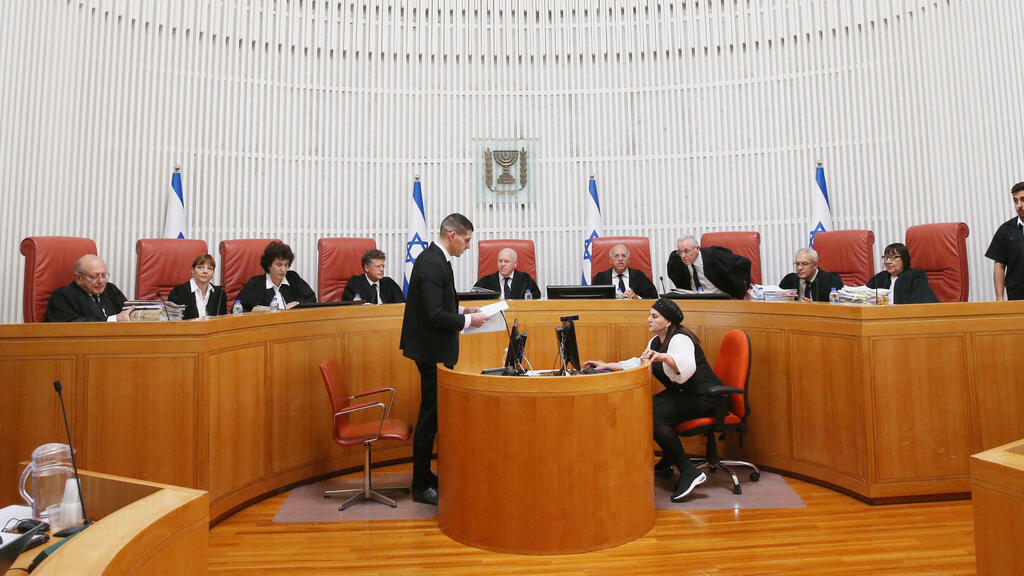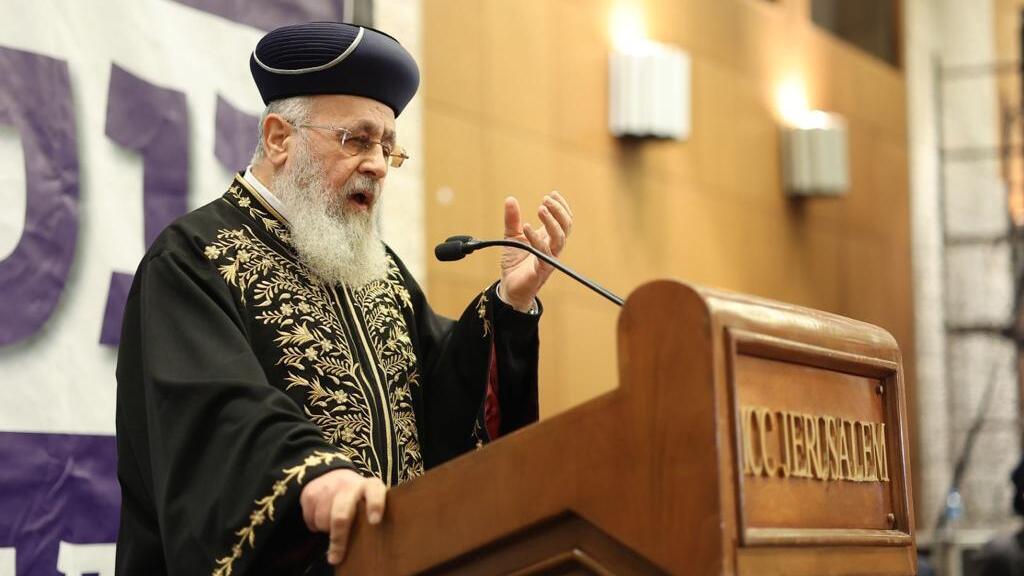Getting your Trinity Audio player ready...
The Supreme Court on Tuesday ruled unanimously that the government must draft Haredi men to military service. In the ruling, the court says there can be no state funding for Yeshiva students who do not enlist.
Petitioners asked the court to rule against the government's efforts to solidify an exemption from military service for ultra-Orthodox men, while the IDF was fighting a war and suffering from a shortage of troops to meet the challenges it is facing.
"The state does not have the authority to instruct a broad exemption from service and in the absence of a law, funding cannot be made from state coffers for yeshiva students who were not legally exempt from service," the court wrote in its ruling. Laws that allowed the Haredi to avoid the draft had expired or were nullified in the years since the question of Haredi military service was a major political matter.
On Monday, the government approved increasing the time that reserve troops would be required to serve and last week, the coalition advanced legislation to maintain the exemption for any ultra-Orthodox man who was studying Torah. That law was being considered by the Knesset Foreign Affairs and Defense Committee to prepare it for a final reading.
Leaders of the Haredi community have said the yeshiva students contributed to Israel's security, no less than soldiers fighting in the war and that their devotion was Israel's defense.
Chief Rabbi Yitzhak Yosef famously said his flock would leave the country if a draft were imposed on them. Another prominent rabbi said death was better than military service.
Prime Minister Benjamin Netanyahu's right-wing and religious coalition relies on the ultra-Orthodox parties for its continued survival. When he returned to power in December 2022, Netanyahu's Justice Minister announced legislation to alter Israel's judicial system and reduce the power of the courts to interfere in legislation decisions by the government. Haredi and settler political ambitions were believed to be behind the legislative initiative. If successful, it may have prevented the Supreme Court's ruling.
Since the war broke out in October, demands increased in the Israeli public and in parties opposed to the government, to draft Haredi men into the military to share the load carried by the secular and religious sectors.
Shas leader Aryeh Deri said there was not a force on earth that can prevent Torah study from anyone wanting it.
The Haredi leadership fiercely opposed their flock serving in the IDF which they saw as immodest and lacking the cultural prerequisites they said were critical to protect Haredi men from exposure to secular values, including serving along with or subservient to female soldiers.
The possibility that thousands of Haredi men would be immediately called up and that military police would begin rounding up those who fail to enlist - is unlikely and the financial aspect of the ruling is considered to be a more immediate threat to the ultra-Orthodox leadership. Netanyahu's government increased funding for Haredi institutions considerably and Yeshiva students enjoy near total exemption from city taxes, childcare facilities at a cost that is far lower than in secular sectors and more.
The government stipends were not given to the Haredi students directly but were transferred to the Yeshiva's where they were registered. Ultra-Orthodox leaders have already begun fundraising in like-minded communities around the world, in anticipation of the court's ruling.



